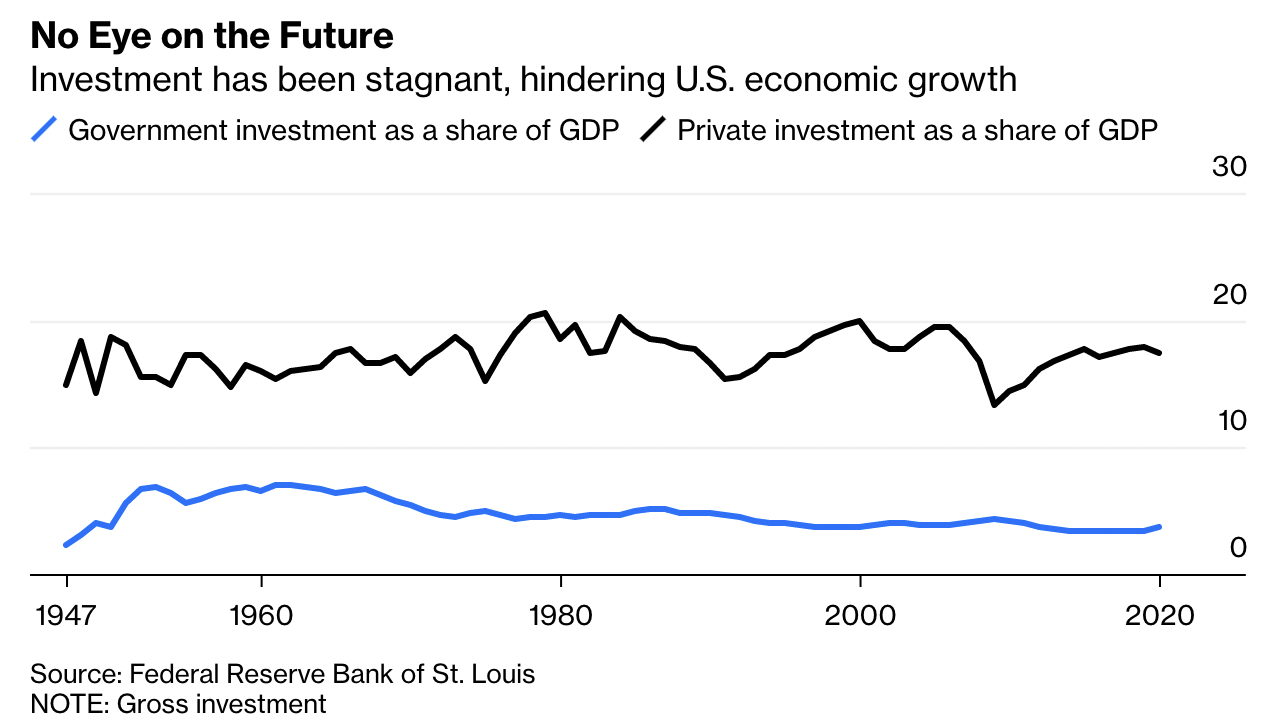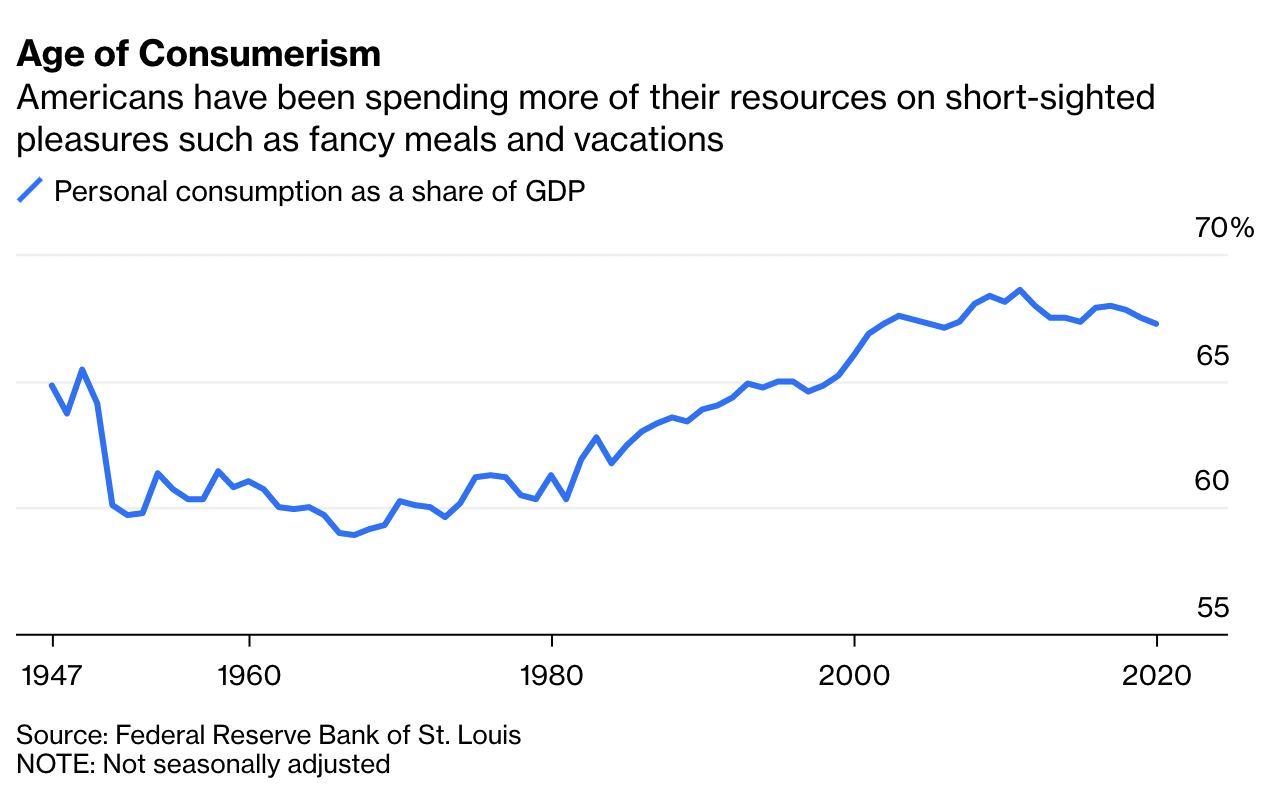Doing Today What Will Benefit Us In The Future
The U.S. government is working toward a bipartisan plan for $550 billion in infrastructure spending over the next five years (you can see the details and how it will be financed here.) It’s a tiny start on the trillions in this type of investment needed.
Today’s test for all developed economies is how to transition the private and public sectors from a 40-year fixation on excessive consumption and short-term financial targets (that ignore full-cost accounting) toward longer-term thinking and productive investments that lower costs/waste and increase resources/sustainability.
Sustaining health and prosperity requires doing things today that our future selves and generations will benefit from.
If you have not yet seen it, the 3-part documentary Myth & Mogul: John DeLorean on Netflix is worth watching and reminds us of how the obsession with status and consumption works to defeat innovation and longer-term viability. You can see the trailer here.
As shown in the charts below, private and public investment as a share of US GDP has declined since the 1980s, as spending on personal consumption has risen. Similar trends have persisted in most developed economies. See America squandered decades living for the moment:
Every society faces a fundamental tradeoff between consuming now and consuming later.
There’s a finite amount of labor, materials, and other resources in the economy, which can be used either to produce goods and services for consumption — fancy meals, nice vacations, and so on — or to produce capital goods like machine tools, roads, and business software. The more a society invests in the latter, the more it increases its productive power — and therefore its wealth — in the future.
Fortunately, disruptive technologies are here to enable us in this process now more than ever before. Plans and blueprints are already in place. What we spend and allocate now must serve the larger plan or we are working at cross purposes. See details in the latest ReThinkx Report: Disruption, Implications, and Choices:
By supporting the clean disruption of energy, transportation, and food, societies can choose to accelerate global greenhouse gas mitigation to reach net zero emissions before 2040 and lay the groundwork for a complete solution to climate change, simultaneously saving trillions of dollars and improving prosperity and quality of life worldwide.
Disclosure: None.





